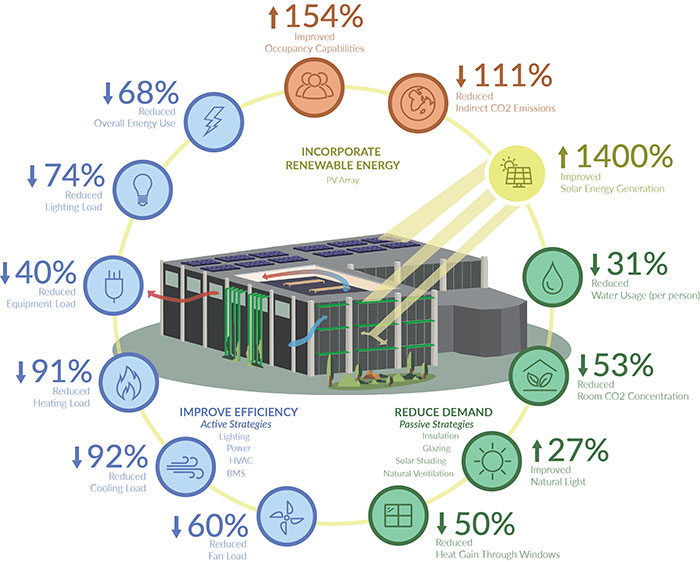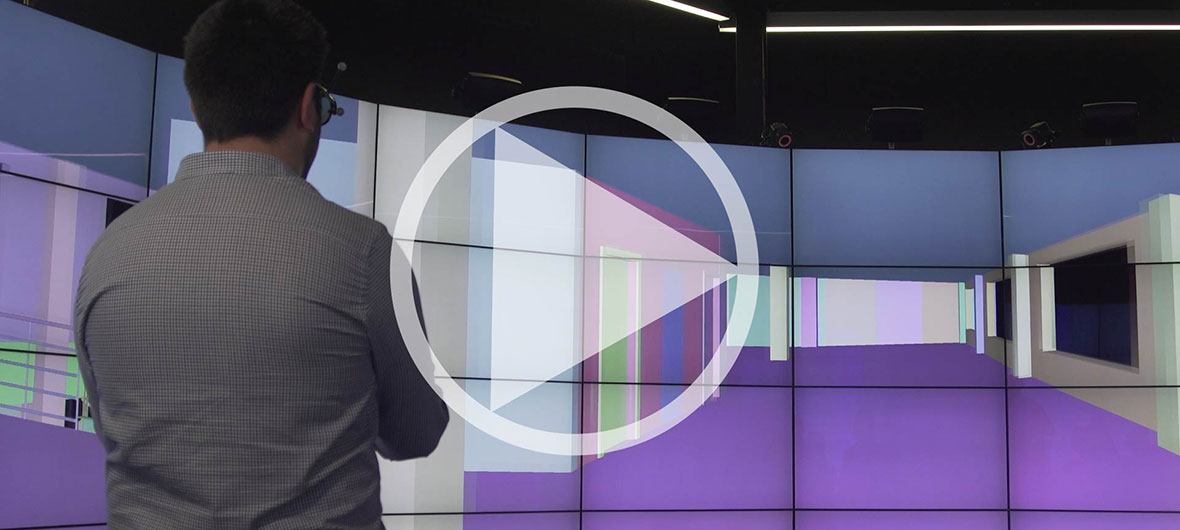Helping students put ideas into practice in the real world.
In collaboration with Monash University, AECOM was a proud participant of this year’s Monash Industry Team Initiative (MITI) which sees leading organisations from across industry partner with multidisciplinary student teams from the university to collaborate and design innovative solutions to real issues in today’s business world.
Over a period of 12 weeks during the summer break, three final year undergraduate students were tasked by AECOM to redesign the second storey of Building 72 at Monash University’s Clayton Campus in Melbourne. From its current use of separate offices and tutorial rooms – the team was briefed to convert the space into a comfortable, flexible and collaborative open plan office while achieving carbon neutrality. The project outputs were then delivered through a presentation to all stakeholders and in a final report.
 |
The MITI is a platform for students to apply learnings from their studies and enables them to benefit from mentoring by experienced practitioners. The team members were chosen after a competitive selection process which partnered students from various technical disciplines challenging them to think more broadly about solutions. Hannah Cameron – studying civil engineering, commented that there were a variety of key takeaways from the experience. “We learnt new technical skills through the use of new software, new consulting skills through our first industry experience and also the importance of environmental design.” |
| The team’s proposed retrofit of Building 72 at Monash University incorporates a range of energy efficient design measures to achieve carbon neutrality. |
Bronte Kerley, studying mechanical engineering and industrial design added that communication was key. “We quickly realised how important it is to communicate clearly and consistently, not just within our own team, but with all the project partners.”
Ian Pitcher, Director – Victoria & South Australia, said there are great benefits of having diverse skillsets in project teams. “There’s no doubt that when different disciplines collaborate you get the benefit of diversity and a better overall solution.”
The MITI program enables the students to work on one full project from concept to detailed design and allows the students to attain a meaningful project outcome, which can then help them to make more informed decisions about the direction of their future careers.
Anthony Panayotides, studying civil engineering said that as future engineers, it’s important they push the boundaries for achieving carbon neutrality. “Following this experience I now think more environmentally-minded, and would like to work on innovative projects that focus on sustainable design outcomes”.
